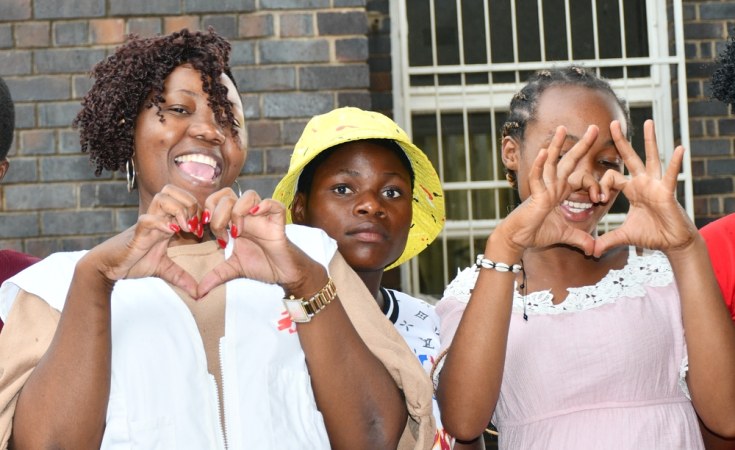Nearly 5000 young girls impregnated between Jan and Feb 2021
Upon realising that she was pregnant at 15 years, Kudzai felt worthless and lost all her hope, as she watched her dreams slip away. She knew all too well the stigma that surrounds early pregnancy in her community and at school and that she could not continue with her education.
For most young girls like Kudzai, pregnancy is not the result of a deliberate choice. Teenage girls often have little or no say in decisions affecting their bodies and lives. They either have little or no information on Sexual Reproductive Health (SRH) and this is worsened by misconceptions surrounding contraception for young people. As for her, early pregnancy resulted from lack of access to age appropriate comprehensive SRH services and information and social pressures.
In Zimbabwe, teen pregnancies have been attributed to idleness resulting from coronavirus lockdown and poverty. School closures increased young girls’ vulnerability to child marriages, early pregnancies, and sexual gender-based violence. Because of COVID-19-induced poverty, young girls fell prey to transactional sex, with men asking for sexual favours for money or food.
“We have adolescent boys and girls who frequently visit MSF adolescent-friendly clinics to have HIV testing, counselling services, mental health support and access to other sexual reproductive health services. With the realisation that most of the teenage girls coming to our clinics in Mbare suburb were pregnant, we formed a teen mums club to offer medical care and psychosocial support to the pregnant young girls,” says Grace Ayuelu, MSF, Mbare Project Medical Representative.
Doctors Without Borders (MSF) started the Adolescent Sexual and Reproductive Health (ASRH) project in 2015 in the Mbare suburb in Harare. The project provides a full and free SRH package which is adolescent friendly that includes access to HIV Testing Services, sexuality education, counselling, and access to contraception and Sexually Transmitted Infection (STI) treatment.
Due to increased stigma and judging at school, Kudzai dropped out of school. She was in the exam class and preparing for exams but could not take the insults and humiliation anymore.
“I was about to write my Ordinary Level at a local secondary school when it happened,” Kudzai narrates.
A taxi driver lured her into a relationship and got her pregnant. He used to ferry her to school and ended up offering free rides in exchange for sex.
Young pregnant girls experience distinct disadvantages, that are not simply a function of their age, which have negative impact on their health and that of the unborn baby. They are often vulnerable, face unique challenges in seeking health care and their pregnancies are at an increased risk of complications and poor results.
Kudzai was encouraged by her friend to go to MSF Adolescent clinic for medical check-ups. She was encouraged to join the teen mum's club when she visited the clinic. Without hesitation, she joined. It was an important step for her.
“Through the MSF teen mums’ club, I got all the support I needed, including pregnancy checks and medical follow-ups, preparation for motherhood, and safe delivery. The club also responded to my psychosocial needs, pre-natal and post-natal counselling, access to mental health services, and sexual reproductive health needs,” adds Kudzai.
Two weeks into joining the club, Kudzai says she felt different. She grew in self-worth and confidence. She learned she has the right to make decisions about her body and that no one can force her into having unwanted or unprotected sex anymore.
The teen mums’ clubs build vulnerable young girls' sexual reproductive health knowledge, medical care and psychosocial skills, building their self-confidence as well. With the realisation that most of the teenage girls coming to the MSF clinic were pregnant and because of the high cost attached to Antenatal Care (ANC) bookings, MSF formed a Teen Mums Club to offer medical care and psychosocial support to the teen mums.
Most young people professed ignorance of where to get contraceptives, how to use them and are marred with various misconceptions on who has to take contraceptives and the age to do that.
“Early pregnancy threatens girls' health,” says Grace. “Girls who get pregnant when they are still adolescents, risk complications in pregnancy or childbirth.
Kudzai had frequent medical check-ups with support from MSF teams from the SRH project in Mbare. She gave birth to a bouncing baby boy. She did not stop there she proceeded with income-generating training coordinated by MSF. The training comprises courses in hairdressing, soap making and cosmetology. Kudzai opted for cosmetology and hairdressing training.
She is confident she can take care of her baby with the money she gets from plaiting people’s hair in her community.
“In the future, I see myself running a big hair salon. My dream is to become a powerful businesswoman and be able to fend for my son,” says Kudzai, with a hopeful look.
Kudzai wants to be a peer educator who can assist in championing comprehensive sexual reproductive health rights for young girls in Mbare.


